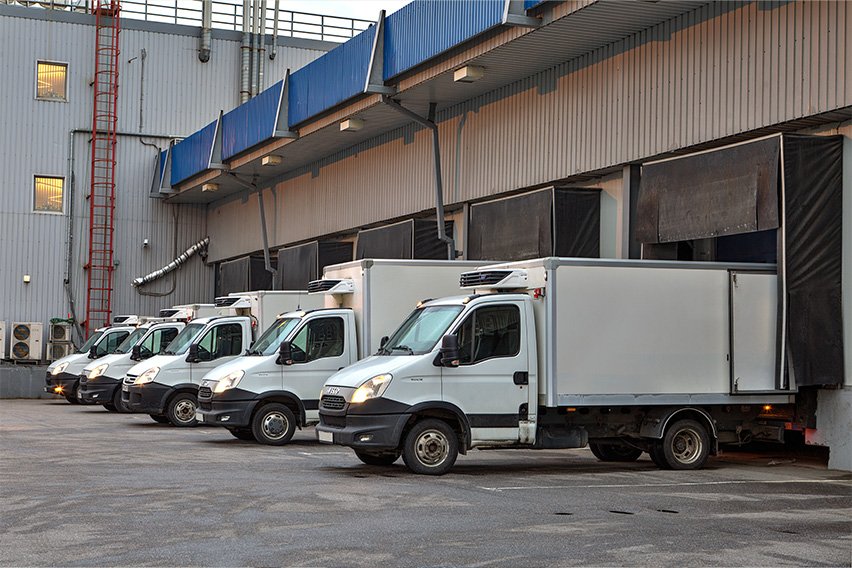How to Start a Catering Business

There are about as many passions as there are people and many people today are taking the leap to turn their passions into profitable businesses. From lawn care companies to consulting companies and bakeries to barber shops, there are many opportunities to start your own small business and make a sizable income.
One area where you can put your cooking and hospitality skills to good use is by starting a catering business. Caterers are needed by private parties, corporate events, weddings and beyond to keep all guests fed and happy.
Want to get paid to cook and put smiles on peoples’ faces? In this guide, we’re covering the seven steps to starting your own catering business from scratch.
But first, let’s start by covering some of the basics.
What Does a Catering Business Do?
Catering companies provide food and beverages for private and corporate events. They’re essentially tasked with keeping guests well-fed with a select range of delicious food, drinks and snacks. Many caterers offer customized menus while others have a set selection of food items to offer.
As a caterer, you’re responsible for planning the menu, hiring cooking and serving staff, cooking the food, and delivering it to the event location. You might cook at home, at the event site or at a commercial kitchen. You’re likely to work with a wide range of clients and various types of events.

The most common services offered by catering companies include:
- Food catering
- Beverage services
- Bartending services
- Rentals for linens and cutlery
- Hot or cold buffet setup
- Chair and table rentals
- Dining area setup and cleanup
- Event planning
Catering companies that offer the full range of catering services are called full-service catering companies and can charge top dollar for managing all of an event’s dining needs.
How Much Do Caterers Make?
According to CareerExplorer, the average wage for an independent caterer in the U.S. is around $13.60 per hour. However, caterer salaries vary widely and catering companies can bring in a significant amount of money by offering a full range of services.
A catering business can be incredibly profitable because it often involves:
- A set customer count, which reduces food waste
- Shorter storage periods for perishable foods
- Fewer requirements when it comes to hiring full-time employees
- The opportunity to serve guests who may then be interested in your restaurant (assuming you have/start one)
- Limitless networking opportunities to start growing your client base
If you want to make a sizable income catering as a business, you can offer services to higher-paying clientele like corporate clients or government agencies. But catering can also be a source of supplementary income if you’d prefer to work part-time or have a fulfilling food-related side-hustle.
What Equipment Do You Need to Start a Catering Business?
Equipment will likely be the most expensive part of starting a catering service. While it’s possible to find cooking equipment on the cheap, you’ll want to consider long-term durability—which may mean higher costs upfront for your small business to get started.
At the top the list is a reliable vehicle that will allow you to transport your equipment, food items, beverages, etc. to the cooking site and event location. You will also need to plan for equipment—like food warmers, bunsen burners and coffee carafes—to keep your items warm once they arrive.
Here’s a list of the recommended equipment for running a catering business:
- Carts for food transport
- Beverage carriers
- Food storage
- Pots and pans
- Baking sheets
- Cooking utensils
- Dinnerware
- Tables and chairs
- Linens
- Serving/banquet tables
- Portable cooking equipment
- Hot and cold food tables
- Serving trays
- Beverage dispensers
Many caterers bypass the costs of buying their own cooking equipment by renting a kitchen. You will need to plan for the appropriate permits (addressed below) in order to do this, but renting a space may cut down on costs and provide even more convenience—especially if you’re running a home-based catering business.
To stay profitable, you’ll need to make sure to estimate the costs of your catering jobs and ensure that your prices cover your expenses, labor and business taxes.
7 Steps to Starting a Catering Business
Starting a catering service can be fulfilling and open the door to even more exciting opportunities. As a small business owner, you’ll have the freedom to be your own boss, earn a decent living and keep your clients happy and well-fed.
Ready to get started? Follow these seven steps to catering business success.
1. Define Your Niche
Depending on your location, you might notice other catering companies (i.e., competitors) in your market. To stand out from the competition, you’ll need to define your niche market and exemplify what makes your small business unique.
First, you need to find an untapped market other companies have overlooked. If you see that a company in your area already caters weddings, consider catering for wedding showers, engagement parties or business conferences.
Then, research what other catering service providers are offering in terms of menu items and plan your own menu that offers something tasty yet unique. Price your food to stay competitive yet consider the needs (and budgets) of your potential clients.
2. Write Your Business Plan
One of the most common reasons small businesses fail is because they don’t have a well-defined business plan from the very beginning. If you go in with no strategy or business structure, it will be difficult to lay out a blueprint for success.
Consider your short- and long-term goals and what you need to set in motion in order to achieve them. The important questions to ask yourself when drafting your business plan include:
- Who are my ideal clients?
- Do I want to cater small, medium or large events?
- Will I serve a specific geographic area or will I travel?
- Will I remain a company of one or hire a team?
- What are my short- and long-term income goals?
- Do I intend for this to be a side-hustle or a full-time business?
You need to get organized early so you can set a clear direction for your food business and move steadily toward your goals. Having a business plan will also help you avoid veering off the path when faced with obstacles or setbacks.
3. Partner with Local Vendors
Buying your ingredients from the local supermarket may not be the most economical option and it’s unlikely you have a stockpile of catering equipment in your garage. In order to prepare to cater events, you’ll need to partner with local vendors for help.
This may include grocery stores that can offer bulk discounts on food, event equipment rental companies, staffing agencies (to find employees), florists and more. The right partners can help you reduce costs and manage your food events with ease.
4. Secure a Cooking Space
Next, you will need to decide whether you want to have a home-based catering business, cook at your existing restaurant or rent a commercial kitchen. Your decision ultimately comes down to budget and convenience, but you should also consider the permit requirements for each.
Your county or state health department will need to inspect your kitchen and ensure that it meets health codes. Many residential kitchens do not meet these often rigid requirements. If this is the case for you, you will need to plan on upgrading your kitchen or leasing a space for a fee.
5. Apply for a Business License
Getting a business license ensures your food company’s legitimacy as an official business and helps make you eligible for certain business tax breaks. With a business license, you can open a business bank account and start managing your business finances, like depositing funds earned from your catering invoices.
Look up your state’s requirements for applying for a business license. You’ll be asked to choose a business structure (limited liability company—a.k.a. LLC—sole proprietorship, etc.), so you should also research these to determine the right type for your food business.

6. Establish a Marketing Strategy
Now the fun part: landing your first paying clients.
To attract clients, establish an online and offline marketing strategy to get in front of your niche market. Again, you should research what your competitors are doing to attract customers in your area.
The most common marketing strategies for catering companies include:
- Search engine optimization (SEO): Launch a business website and target the select keywords your potential clients are using to search for catering companies in search engines like Google. You can attract clients organically through on-page SEO, local SEO or blogging.
- Social media marketing: Post about your business on Facebook, Instagram and other popular social media platforms. Grow your following and share engaging content to get potential clients interested in your services.
- Paid ads: Run Google Ads or Facebook Ads to reach a specific audience and direct potential clients to your website. You will pay a set fee for each person who clicks on your ad to learn more about your services.
- Networking: Network with other business owners in your area to build partnerships and generate referrals. Sometimes one of the best sources of leads for catering businesses is word-of-mouth.
Once you land your first client, your goal is simply to deliver an amazing, five-star experience. Do your very best work and always be improving. Top-quality service is how your business grows.
Ready to bill for your catering services? Send automated invoices with fast, easy-to-use catering accounting software. This will help you get paid fast and keep your business finances in check.
7. Earn Positive Client Reviews
The success of your catering business depends on you delivering great food and all-around fantastic service. While you shouldn’t expect to be perfect from the start, you can always improve your skills over time and learn more about what it takes to be a successful business owner.
Ask your clients to leave shining reviews on Google, Yelp or your business Facebook page to attract even more clients. Over time, you will earn a reputation for being a great caterer in your area and your fledgling business will thrive.
Cook Your Way to Success
As long as you have a passion for cooking, hospitality and entrepreneurship, you have what it takes to start a catering business. With the steps outlined in this guide, now you have even more direction on how to start a catering service from the ground up.
It’s never too late to go into business for yourself. Get cookin’ with your own catering company today.
RELATED ARTICLES

 How to Start a Courier Business
How to Start a Courier Business 8 Steps to Starting a Successful Transport Business
8 Steps to Starting a Successful Transport Business How to Start a Successful Trucking Company
How to Start a Successful Trucking Company How to Start a Consulting Business
How to Start a Consulting Business How to Start a Farm: Grow Your Farming Business from the Ground Up
How to Start a Farm: Grow Your Farming Business from the Ground Up How to Start a Business: From Registering to Launching a Startup
How to Start a Business: From Registering to Launching a Startup